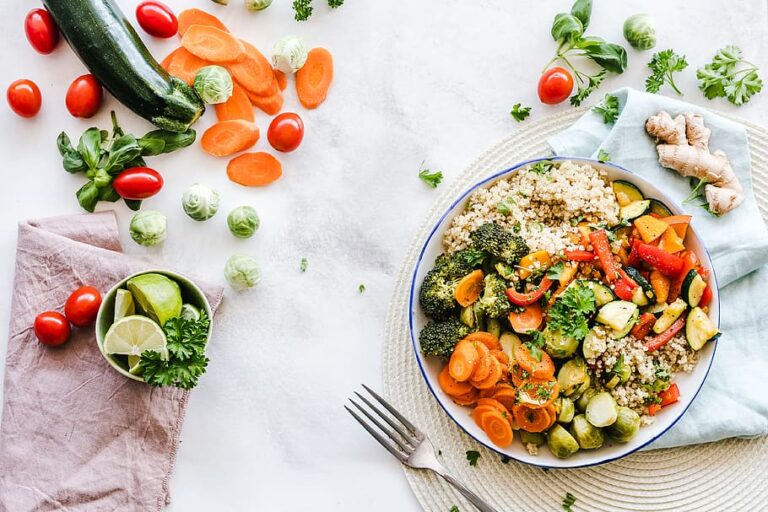
Almost a third of our population suffers from fatty liver ailments. Here’s some diet tips to minimise the risk.
The risk of obesity is much complex than it seems as it lead to other diseases. There are approximately 650 million people who comes in obese category and the counting seems to increase massively due to the erratic lifestyle and unhealthy dietary habits.
The co-morbidities associated with obesity are also on a rise. One of them is fatty liver disease – which could be alcohol-induced or non-alcoholic fatty liver disease. Almost 1/3rd of the population is suffering from Fatty liver ailment, which is one of the leading contributors in liver failure.
A healthy diet
The risk of obesity is much complex than it seems as it lead to other diseases. There are approximately 650 million people who comes in obese category and the counting seems to increase massively due to the erratic lifestyle and unhealthy dietary habits.
The co-morbidities associated with obesity are also on a rise. One of them is fatty liver disease – which could be alcohol-induced or non-alcoholic fatty liver disease. Almost 1/3rd of the population is suffering from Fatty liver ailment, which is one of the leading contributors in liver failure.
Also Read| Here’s How To Practice Mindful Eating Habits
Non-alcoholic fatty liver disease is most commonly diagnosed in those who are obese or sedentary and those who are on highly processed food diet.
An unhealthy liver adds on to other co-morbidities such as diabetes/ indigestion / hormonal imbalance etc. While, a healthy body helps to remove toxins and produces bile, the digestive protein, which helps in building up immunity.
A well-balanced diet includes:
-lots of fruits and vegetables for adequate fiber and antioxidants
-plant-based proteins like legumes and whole grains
-very little or no added sugar, salt, trans fat, refined carbohydrates, and saturated fats
-No alcohol/ carbonated beverages.
-A low fat, low salt, reduced-calorie diet can help you lose weight and reduce the risk of fatty liver disease. Ideally, if you are overweight/ in comes under obese category, try and aim to lose at least 10 percent of your body weight slowly and gradually.
The Diet Chart For Liver Health
These foods are packed with healthy fats, antioxidants, and complex carbohydrates which not only cures fatty liver but also helps in maintaining its health:
- Fish oil – salmon/tuna/cod liver etc.
- Fruits- oranges/ kiwi/ avocado/ fresh-berries/ apple/ dates etc.
- Whole grains- oats / wheat/ quinoa etc.
- Nuts- almonds/ walnuts/ pine nuts/ seeds
- MCT’s – white butter / Olive oil
- Vegetables- high in fibre
- Legumes and pulses
People with fatty liver disease often have a condition called insulin resistance which results in increased blood sugar level. That means your body makes insulin but cannot use it well for controlling sugar level. Glucose builds up in your blood, and your liver turns it into fat slowly and gradually.
Certain fats-like medium chain triglycerides/ emulsified fats/ MUFA/PUFA in your diet can help your body use insulin better. Hence, your cells can take in glucose and the liver does not need to make and store fat.
The Healthy Fats:
- Omega-3 fatty acids, found in fish, fish oil, vegetable oils, nuts (especially walnuts), flaxseeds and flaxseed oil, and leafy veggies
- Monounsaturated fats in plant sources like olives, nuts, and avocados
- Mct’s-emulsified fats, white butter
- To avoid- in non-compliance in liver disease diet
- Non-veg. source of proteins to be limited. Completely avoided in case of hepatic encephalopathy.
- Full-fat cheese/butter/ ghee etc.
- High fat milk and milk products
- Baked goods and fried foods made with palm or coconut oils.
- Limit sugary items like candy, regular soda, and other foods with added sugars including high-fructose corn syrup.
- Limit Pickles/ chutneys and papad etc.
Antioxidants rich diet plays a significant role in building liver health. Cells are damaged when nutrients do not break down properly- as in case of fats and complex carbs. This can lead to fat buildup in your liver. However, compounds known as antioxidants can help protect cells from this damage.
Here are some rich sources of antioxidants, you can try adding in diet to protect your cells:
- Herbal/ Green tea
- Raw garlic/ onion/ ginger
- Fruits, especially berries
- Vitamin E. You can find it in:
- Sunflower seeds
- Almonds
- Liquid plant-based oils with monounsaturated fats, like olive oil.
Some effective superfoods for liver health:
-Goji berry, a compound found in goji berries called betaine, is used by the liver to produce choline. Choline supports the liver and kidneys by helping them discard toxins and waste from the body.
-Resveratrol helps in controlling inflammation.
-Milk thistle: the active ingredient in milk thistle, silymarin, acts as an antioxidant by reducing free radical production.
-Turmeric-ginger-garlic are rich suppliers of antioxidants
-Vitamin D: Low levels may play a role in more severe fatty liver disease. Vitamin D is found in mushroom, dairy products, and sunlight.
-Low levels of Potassium may be linked to non-alcoholic fatty liver disease (NAFLD). Fish like cod, salmon, and sardines are good sources of non-vegetarian food. While, Broccoli, peas, and sweet potatoes, and fruits such as bananas, kiwi, and apricots are apt for vegetarian sources.
Recent Post
Crafted by Webcreatore Digital Solutions LLP.






